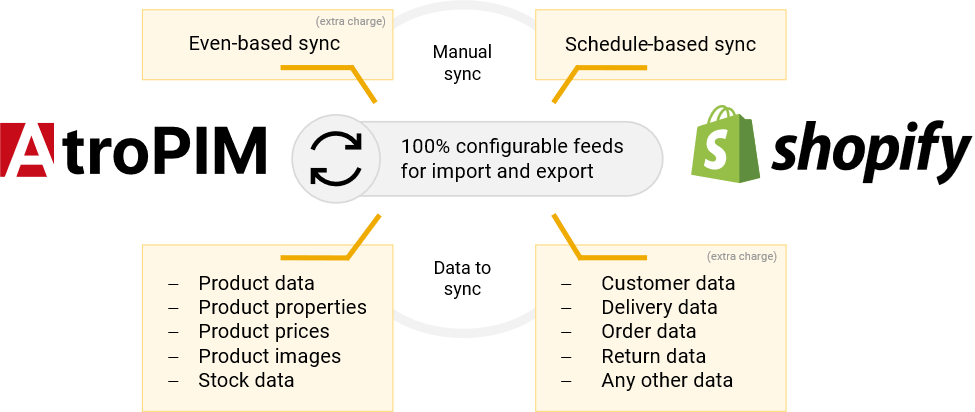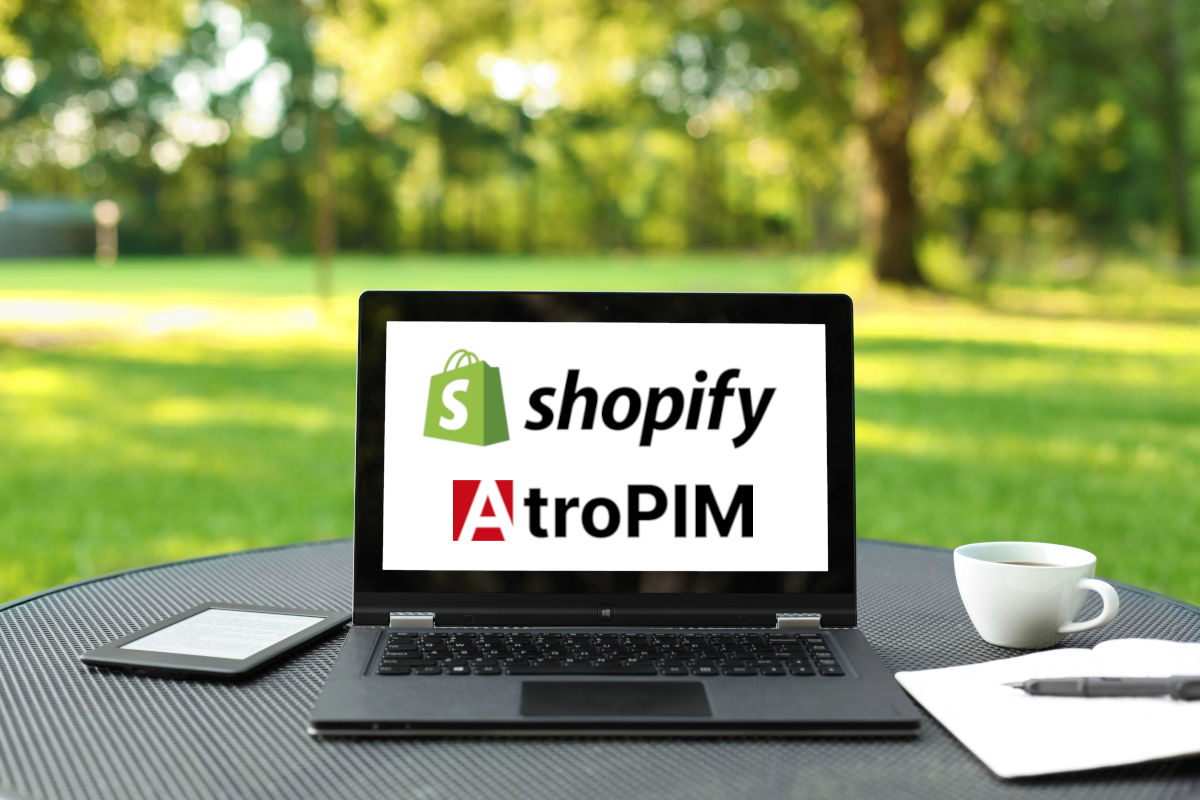If you are a Shopify store owner or manager considering integrating your e-commerce platform with a Product Information Management (PIM) system and want to learn more about the nuances of such integration, this article was written for you.
The Shopify’s Pros and Cons
Shopify provides a comprehensive toolset for creating, managing, and scaling an online store. It includes features for product management, payment processing, order fulfillment, and marketing, making it a comprehensive platform for businesses that want to run their entire e-commerce operation in one place Therefore businesses on Shopify become tempted to rely on the platform's native product management features due to convenience and cost considerations. However, while Shopify excels in many areas, its built-in product information management (PIM) features are lacking, which is particularly obvious for businesses with complex inventories or extensive product data requirements. Shopify's native product management capabilities do fall short in areas like advanced data enrichment, centralized data governance, and synchronization across multiple sales channels.
Can I Run My Shopify Store without PIM Software?
The answer is yes, and in many cases, quite effectively. As long as you are managing a relatively simple product catalog with straightforward attributes and limited variants, Shopify’s built-in tools, like variant management, inventory tracking, product categories, and bulk editing, will suffice for your needs. Small boutiques, niche shops, and businesses with low inventory turnover can rely on Shopify’s native product management features without the need for additional PIM software. The problems arise when your products have numerous combinations of attributes or intricate configurations. For example, if you offer a wide range of customizable options or complex bundles, deal with bulk updates, or need advanced data enrichment, detailed product attributes, or custom metadata that goes beyond Shopify’s basic variants
You Do Need to Integrate Your Shopify Store with a PIM if You:
- Are a retailer with extensive product catalogs or intricate product variants (e.g., electronics with multiple features).
- Are in need of real-time data synchronization.
- Require Integration with Other Systems like ERPs, CRMs, Marketplaces, other e-commerce platforms, etc.
- Are a distributor and/or a wholesaler
- Offer customizable or configurable Products
- Face errors and want to improve product data quality
This list highlights some of the key types of Shopify businesses that can benefit from using PIM software, though it is not exhaustive. If this applies to you, let’s proceed to the practical matters of PIM Shopify Integration.
How to Integrate Your Shopify Store with a PIM?
The PIM Shopify Integration solutions are usually provided by PIM vendors. These integrations typically involve automating the synchronization of product data between your PIM system and your Shopify store. This allows for one-way or two-way data transfers, which cover various data types such as product attributes, images, pricing, inventory levels, and customer information.
The integration is achieved by setting up data feeds, which can be customized and scheduled according to your needs. These feeds run at defined intervals, automatically updating your Shopify store with the latest product information from your PIM system.
In a standard PIM-Shopify integration, various types of product-related ready-to-use data are transferred from the PIM system to Shopify. This includes product data, properties, prices, images, and stock levels so that your Shopify store is always up-to-date with the most accurate and enriched product information.
Conversely, Shopify sends back critical operational data to the PIM system, such as customer information, delivery details, order histories, and return records. This exchange allows the PIM to process, analyze, and further distribute this data to other systems or stakeholders as needed.
Why AtroPIM?
If you are in search of a PIM Shopify Integration solution that is highly customizable and affordable at once, consider AtroPIM.
AtroPIM stands out as one of the most customizable PIM-Shopify integration solutions available. With AtroPIM, you gain the flexibility to tailor every aspect of the integration to suit your unique business needs and can be sure that all data is processed, analyzed, and distributed efficiently across your entire operation.

The integration uses Shopify's REST Admin API to facilitate these data exchanges, ensuring that all updates are consistent and that the product information on your Shopify store remains accurate and up-to-date.
Conclusions
While being a powerful e-commerce platform, Shopify lacks built-in product information management (PIM) capabilities especially for businesses with complex product catalogs. For simpler setups, Shopify's native tools might be sufficient, but the growing inventory and intricate data requirements will leave you no other chocie but to integrate a PIM system into your workflows. This integration ensures seamless, automated synchronization of product data between your PIM and Shopify, keeping everything up-to-date and consistent. AtroPIM, known for its high level of customization and affordability, stands out as an ideal solution for businesses looking to optimize their Shopify operations with a tailored PIM integration.



